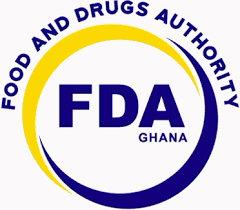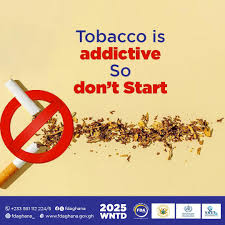Two months after the BBC aired a damning exposé on the opioid crisis unfolding across parts of West Africa, including Ghana, the silence from Ghana’s top regulatory and enforcement bodies has become deafening.
The investigation uncovered a disturbing trend: highly addictive and dangerous opioids, banned in several countries, are being imported into Ghana not under the radar but in broad daylight—legally and with official clearance.
Bright Simons of IMANI Africa, in a detailed follow-up, paints an alarming picture.
According to him, what was most disturbing was not only the influx of opioids but the fact that “otherwise respectable companies” were key players in what can only be described as a state-enabled poisoning of citizens.
Simons emphasized that this wasn’t about drugs being smuggled under false pretenses. “They were being imported and distributed in plain sight.”
“…The FDA appeared to confirm that the kingpin exporter of these opioids, Aveo, and its affiliates, especially Westfin, were registered business partners of Samospharma, the company cited in the documentary for importing and retailing some of the drugs through outlets bearing the brand of its award-winning e-pharma platform, DrugNet.”
Bright Simons
However, Samospharma was having none of it. The company lashed out, threatened to sue the BBC, and dismissed the FDA’s records as fake. “It demanded a public retraction and an apology.”
In a system where policy accountability often takes a backseat to spectacle, Simons observed that public officials relied more on theatrics than substance to “resolve” such scandals.

As if on cue, the Health Minister presided over a bonfire where opioids—allegedly meant for trans-shipment to Niger—were incinerated.
However, Simons expressed concern that even after several weeks, there is still no clear explanation of how unregistered or banned drugs entered the country through official channels—nor any indication of who should be held accountable.
BBC Probe Exposes Regulatory Weakness
Furthermore, Bright Simons highlighted the troubling absence of consequences in the unfolding opioid crisis. Despite the severity of the situation, no sanctions have been issued.
According to him, no importer has been identified, and no official has offered a clear explanation for the systemic failures that enabled these substances to slip through regulatory cracks. Business continues as usual—only without accountability.

He stated that “the problem is deep, broad, and totally perplexing,” revealing that one firm has allegedly become a trafficking node, yet insists its brand has been impersonated.
He noted that regulators and security agencies seem paralyzed, unable or unwilling to get to the bottom of this mess.
“The recent circus around purported intelligence tips to the effect that a major global medical ambulance operator is smuggling cocaine into Ghana reeks of the same ‘performative’, katanomic, and distractive methods used to undermine genuine accountability.
“More citizens would have to get involved in collaborative investigations for the situation to see any improvement.”
Bright Simons
He stated that data compiled shows that more than 200 million units of opioids may have entered Ghana in a relatively short period. And these weren’t just shipments from shadowy firms.
According to him, some were traced to entities connected with high-profile individuals, such as one linked to a known supporter of the University for Health & Allied Sciences’ School of Pharmacy.
This company, Simons noted, had a sophisticated e-commerce system that once offered 100mg Tramadol—strictly prescription-only—online.
FDA, Inconsistent Amid Opioid Crisis
Bright Simons also raised concerns about the contradictions in the FDA’s position. While the agency insists that tapentadol—a key component in the controversial drug Tafrodol—is not approved in Ghana, the drug was previously listed for sale online.
Although recent searches now show it as “out of stock,” the situation remains deeply suspicious.
Simons noted that trade records list software companies as importers, linked to Aveo—the same firm spotlighted in the BBC exposé.

Following Aveo’s creation of Westfin as a proxy distributor, shipments of opioids into Ghana spiked in early 2023.
He further pointed out that the increased import activity by individuals is troubling, especially since Ghanaian regulations restrict such imports to registered companies only.“Totally shocking and baffling.”
Even more troubling is the manipulation of trade routes. Products originating in India were listed as coming from Egypt and South Africa.
Attempts to verify the supposed subsidiaries in these countries yielded nothing. It’s clear: the system is broken, porous, and ripe for exploitation.
The findings corroborate the BBC’s assertion that Ghana’s ports are now a soft target for traffickers, with Nigerian firms using them as entry points to bypass tighter regulations at home. And these opioids are not slipping through unnoticed.
They’re cleared by licensed agents who pay official fees and duties. If impersonation is the excuse, then someone high up must be enabling it.
“For example, in the dramatic standoff between Samospharma and the FDA, the issue of the right manufacturer of prolatan eye-drops featured strongly. Even though Samospharma insists on having registered Sudarshan as the manufacturer and exporter, the FDA’s records suggest the involvement of Aveo, the company in the eye of the BBC investigative storm.”
Bright Simons
Simons revealed that bills of export clearly show registered clearing firms like Duncan International and Hans Shipping Services handling shipments tied to this saga—openly and with a paper trail.
According to him, analysis shows a chilling ecosystem of legitimate pharmaceutical firms, trusted logistics providers, and e-commerce platforms inadvertently—or deliberately—facilitating the opioid influx.
The real horror? These are transparent, legal transactions in a supposedly regulated industry.
If such visible operations can shield a crisis of this magnitude, then there’s little hope for catching truly clandestine activities like cocaine trafficking.
“Clearly, the ‘system’ is much too compromised for any such hopes to be entertained.” Simons concluded.
For now, Ghanaians are left with bonfires, bluster, and bizarre tales of drug smuggling in ambulance cockpits.
READ ALSO: Ghana’s Disinflation Trend Faces Setback from Rising Imported Costs







